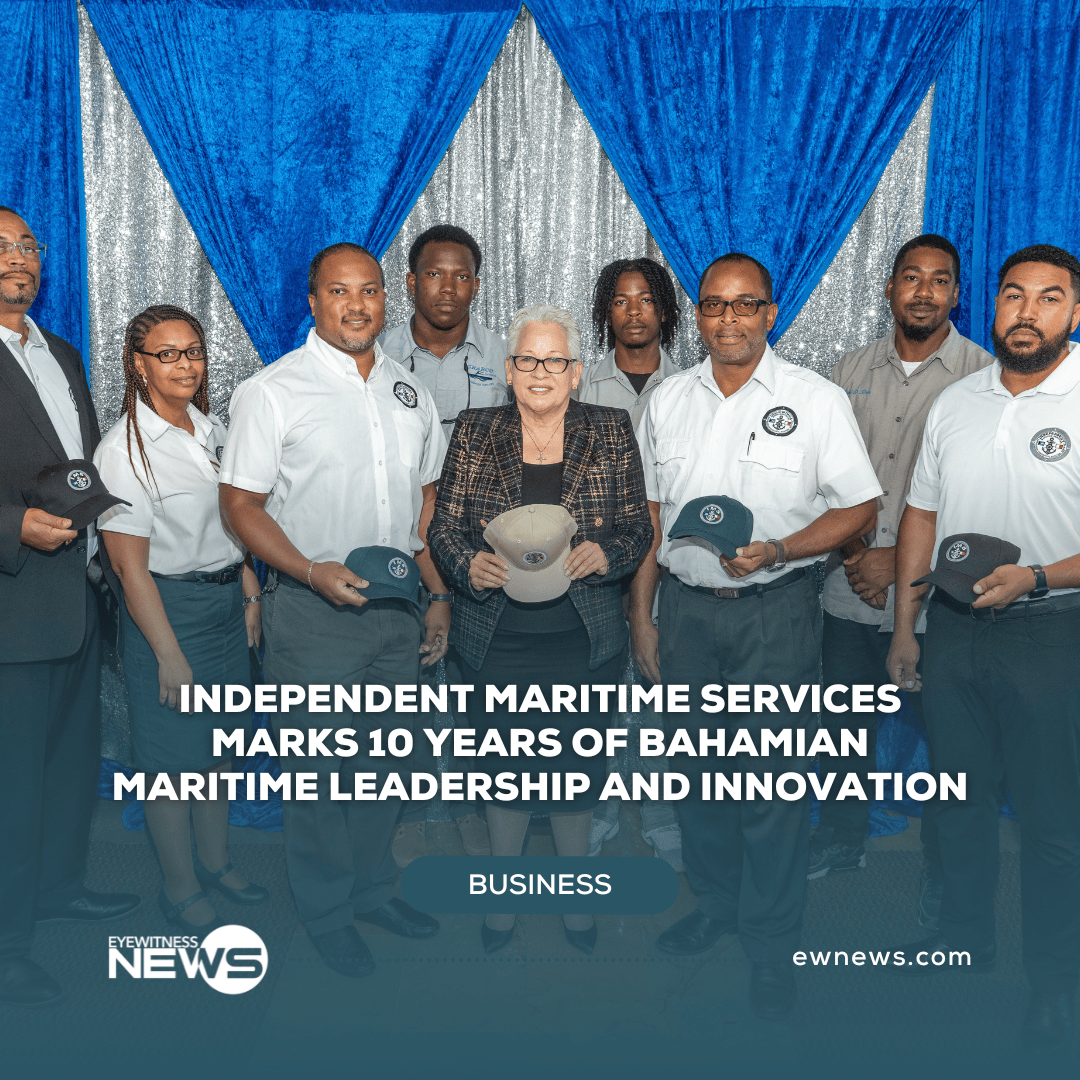NASSAU, BAHAMAS- Independent Maritime Services (IMS), a fully Bahamian-owned and operated marine pilotage company, marked 10 years of service with a milestone celebration at Pelican Bay Hotel on Friday, May 23, 2025, highlighting its vital role in advancing the Bahamian maritime industry and economy.
Marine pilots have provided indispensable services to ships in the maritime industry for decades, and pilot services have been offered in Bahamian ports since the 1900s. Since 2015, IMS, based on Grand Bahama Island, has expanded its offerings beyond pilotage to include a wide range of maritime services such as logistics, launch and port services, and guiding vessels in Harbour Island, Egg Island, Eleuthera, Exuma, Conception Island, Long Island, San Salvador, and Bimini/Ocean Cay. The company currently employs a dedicated team of 15 personnel, including seven licensed marine pilots, administrative staff, and operations teams.
Founded in 2014 by a group of marine pilots determined to chart their course, IMS has become a cornerstone of maritime safety and operational excellence. Headquartered in Grand Bahama, the company has safely executed more than 6,000 vessel movements throughout The Bahamas.
During his remarks, IMS president and co-founder Captain Justin Wallace reflected on the significance of the company’s founding and its broader impact on national development.
“We started IMS with the belief that Bahamians not only could, but should lead in our own maritime industry,” Wallace said. “Ten years later, we stand as living proof that vision, unity, and persistence can overcome any storm.”
Wallace credited his colleagues, including co-founders Captain Kendall Williamson and the late Captain Philip “PJ” Thomas, for their tenacity, and paid tribute to their families and supporters. He also thanked successive administrations and key public servants who played pivotal roles in IMS’s success.
“Minister Hanna-Martin has been with us from the beginning — her push for fairness and national empowerment made all the difference,” Wallace said. “We are here in large part because of her unwavering support.”
Minister of Education, Technical and Vocational Training, Glenys Hanna-Martin, who served as Minister of Transport when IMS was licensed in 2015, delivered heartfelt remarks that underscored the historic significance of IMS’s formation.
“This was a fundamental paradigm shift,” Hanna-Martin said. “These young marine pilots told the nation that this was something Bahamians could do—and they were right. Their courage redefined how we see ourselves and our role in our economy.”
Hanna-Martin, who was a driving force behind the regulatory reforms that enabled IMS’s licensing, recalled the resistance IMS faced and the determined advocacy of its founders.
“They pushed, they lobbied, they were insistent—and a government had to listen,” she said. “They broke open a door not just for themselves, but for future generations of Bahamian professionals.”
She also remembered Captain Philip “PJ” Thomas who perished during Hurricane Dorian.
“He was a bright light and part of this historic movement,” she said. “His memory lives on in every safe voyage, in every opportunity created.”
Hanna-Martin called for a documentary to chronicle the IMS journey, describing it as “one of the great untold stories of Bahamian self-determination.”
Chief Captain Williamson, former IMS president, took the audience through the company’s challenging formation period and the legal and regulatory milestones that solidified its role in the maritime sector. Chief among these was the establishment of the Grand Bahama Anchorage as a compulsory pilotage area, under the Port Authorities Act.
“This is what happens when government works for the people,” Williamson declared. “It took guts, vision, and an understanding of our capacity as Bahamians to provide world-class service.”
He revealed that IMS’s formation came at great personal cost, with 15 marine pilots resigning from well-paying positions in 2014 to launch the company.
“The pay was good, but we had to make a stand—for ourselves and the next generation.”
Williamson outlined landmark operations that would not have been possible without Grand Bahama’s compulsory pilotage designation, including the Boka Vanguard heavy-lift operation involving the Carnival Horizon, LNG ship-to-ship transfers, oil rig anchorage, and major bunkering operations.
Beyond operations, he noted that IMS has been deeply committed to national development. The company has donated laptops and tablets to schools in Bimini, Grand Bahama, and Nassau; provided partial scholarships for maritime cadets; and supported numerous NGOs and youth organizations across the country.
“The creation of this industry has given us the ability to train future mariners, create jobs for our communities, and give back meaningfully,” Wallace said.
Despite a decade of progress, Wallace and Williamson both urged continued effort to ensure access and opportunity for young Bahamians in the maritime industry.
“There is a national push for enrollment in maritime academies,” Wallace noted. “But we also need a push to open doors. Laws must be enforced, and opportunities made available.”
“Challenges create champions,” Williamson added. “And we must complete what we started. The government has supported the blueprint—now we must see it through.”
As IMS enters its second decade, its leaders remain focused on legacy, empowerment, and advancing Bahamian identity within the global maritime sector.
“We’re proud of our past,” Wallace said, “but even more excited about the future. The tide is turning—and it’s Bahamian hands on the helm.”
IMS stands not only as a testament to the power of local initiative and resilience but also as a beacon for the future of maritime leadership in The Bahamas. Through continued dedication to excellence, community investment, and nurturing the next generation of maritime professionals, IMS is charting a course toward sustainable growth and national pride in one of the country’s most vital industries.






